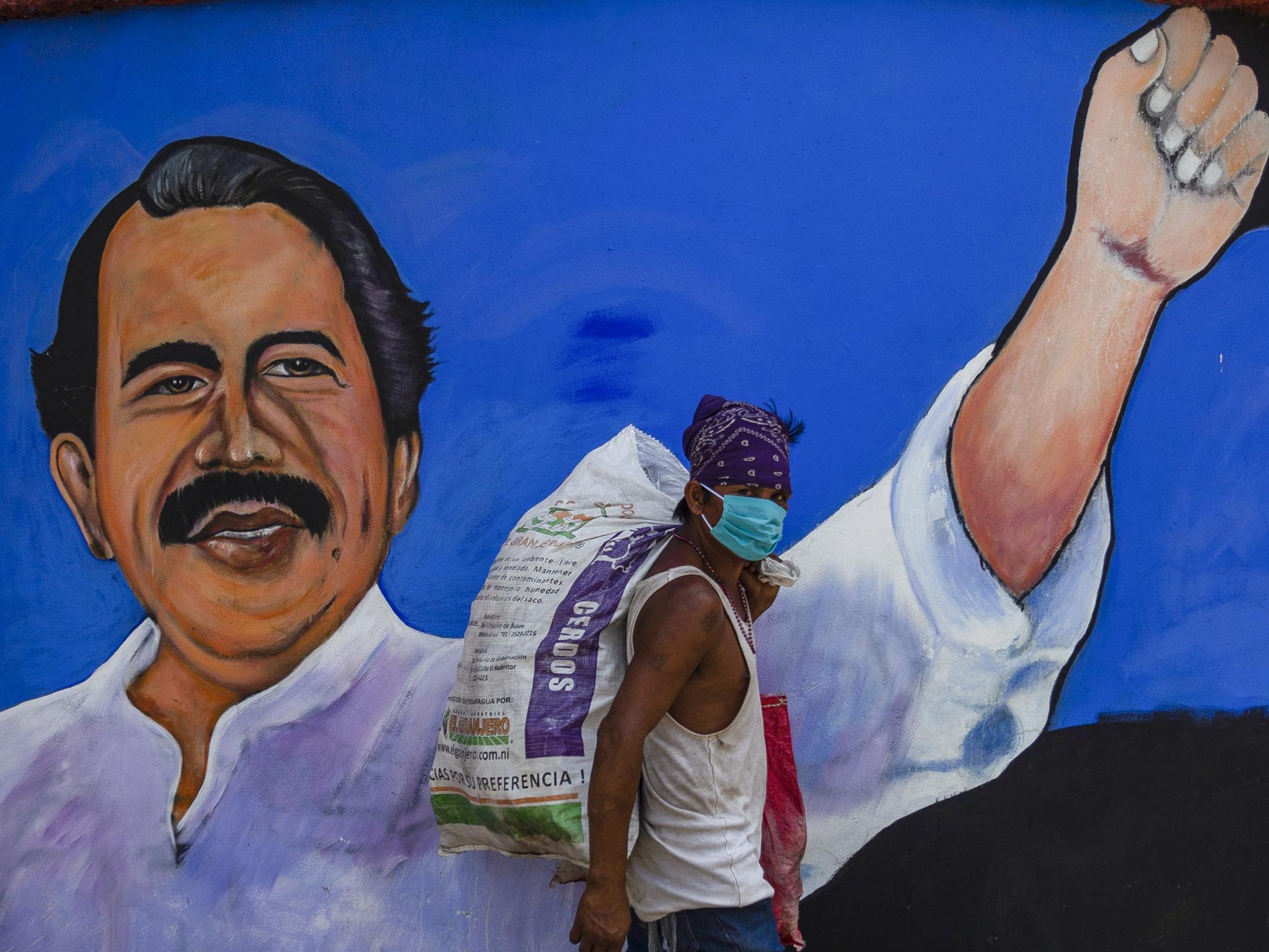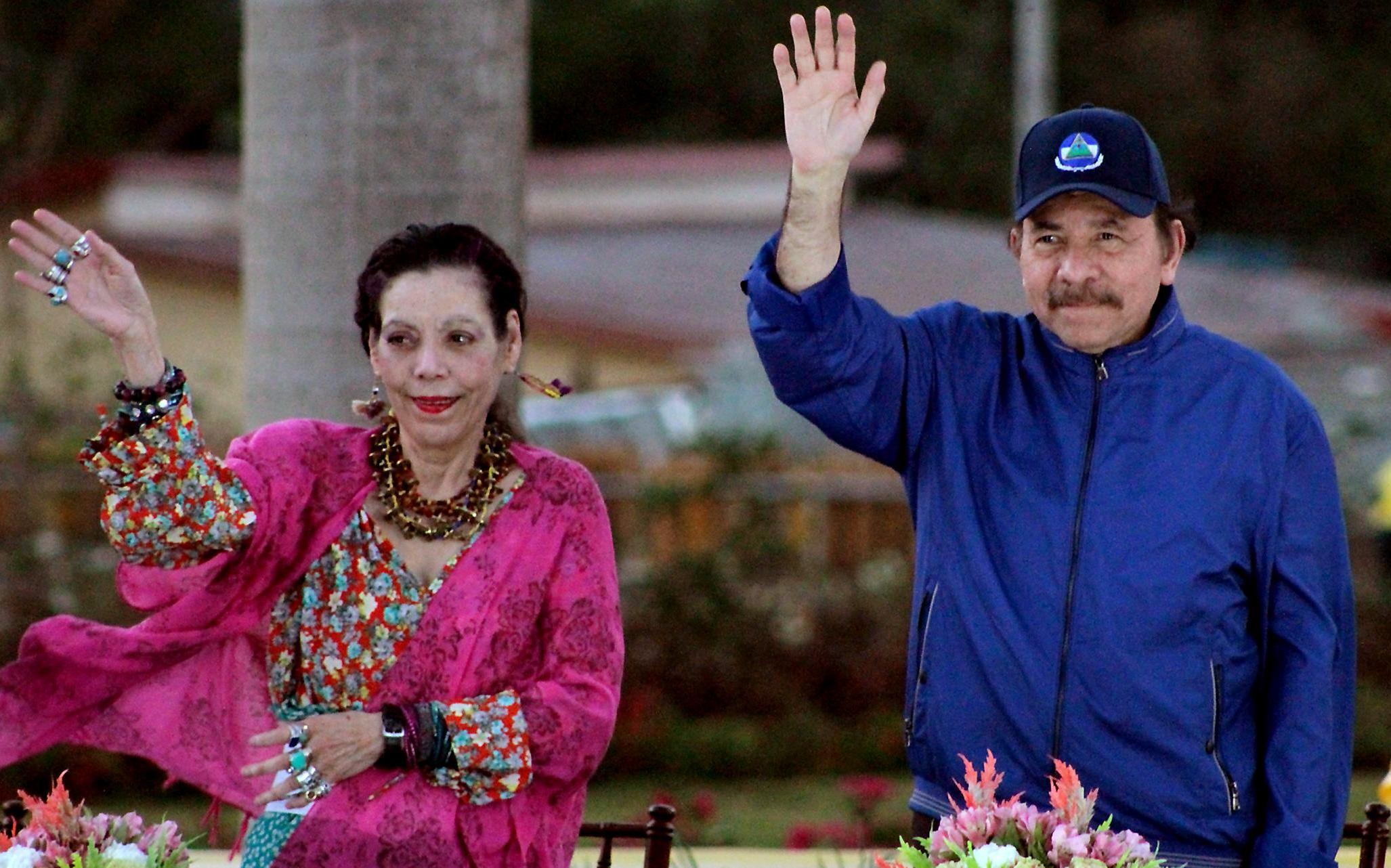Mystery over Nicaragua’s president who hasn’t been seen in over a month amid pandemic
Daniel Ortega has not made a public appearance in 40 days, leading to concerns over his health
Your support helps us to tell the story
From reproductive rights to climate change to Big Tech, The Independent is on the ground when the story is developing. Whether it's investigating the financials of Elon Musk's pro-Trump PAC or producing our latest documentary, 'The A Word', which shines a light on the American women fighting for reproductive rights, we know how important it is to parse out the facts from the messaging.
At such a critical moment in US history, we need reporters on the ground. Your donation allows us to keep sending journalists to speak to both sides of the story.
The Independent is trusted by Americans across the entire political spectrum. And unlike many other quality news outlets, we choose not to lock Americans out of our reporting and analysis with paywalls. We believe quality journalism should be available to everyone, paid for by those who can afford it.
Your support makes all the difference.Mystery surrounding the absence of Nicaraguan president Daniel Ortega continues to grow, with the leader having not been seen in public for the last 40 days.
Ortega, 74, has not been seen in person since a televised military event on 21 February, prompting doubts about the status of his health.
Although he did take part virtually in a conference call among the heads of state from Central America’s System of Integration (SICA) on 12 March, his lack of visibility has seen Nicaragua come under fire for the manner in which they are handling the pandemic. The country’s response to the crisis has been labelled “reckless” by Human Rights Watch.
There are, however, only nine confirmed cases and one fatality in the country as of Wednesday morning, according to Johns Hopkins University, though there are many more cases in neighbouring Costa Rica (618) and Honduras (419).

The response from these nations, now operating under stricter preventative measures, is in stark contrast to Nicaragua, whose border, public schools and universities remain open.
There has been no social distancing policy implemented from the top, while popular events for tourists such as Managua’s market festival – which included tasting events - and the traditional Easter festival of Matagalpa took place as planned.
Dr Carissa F. Etienne, a director of the Pan American Health Organization (PAHO) and WHO Regional Director of the Americas, admitted there are growing fears concerning the lack of initiative from the government.
“We have concerns for the lack of social distancing, the convening of mass gatherings,” Dr. Etienne said. “We have concerns about the testing, contact tracing, about the reporting of cases. We also are concerned about what we see as inadequate infection prevention and control.”
Dr. Etienne confirmed these concerns have now been raised informally and formally, while PAHO are ready to collaborate with the government in a way that will “save lives and avoid too much illness”.
Adding to their criticism of the government though, Human Rights Watch claimed the government’s tactics “blatantly contradict global health experts’ advice and put people’s health and lives at risk”.
Ortega’s family meanwhile continue to ignore the impending danger of the virus spreading, with Juan Carlos Ortega, the president’s son, posting at the start of the month a picture with his children and the caption: “We have a unique country . . . and it’s best to enjoy it with your family!”

His wife and the country’s vice president Rosario Murillo has also barely mentioned her husband since assuming public duties.
“Our commander Daniel is here, working and directing, coordinating all the efforts we make, that we are and will continue to make because we have a firm compromise with the country,” she said earlier this month.
While her latest announcement on Sunday also failed to provide any update on his whereabouts: “Everything is calm, families celebrating in union at home and the places they visit this Sunday of resurrection, enjoying our traditions, our traditional gastronomy.
“The hug of our commander Daniel to each home, to each family. Let’s go forward because we are a nation of hope, of faith.”
The situation in Nicaragua has left Costa Rica president Carlos Alvarado concerned about the knock-on effects of their neighbours’ approach, admitting: “We’re worried about their approach, because the recommendations of the [World Health Organization] are for social distancing. Calling for marches and crowds of people goes against these recommendations.”

Join our commenting forum
Join thought-provoking conversations, follow other Independent readers and see their replies
Comments